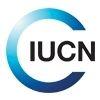|
|
Due to maintenance work, our HR Management System might be inaccessible
on
Monday, 29 July 2024, from 11:00 to 12:00 CEST (UTC+02:00)

Media and Communications Officer
|
1. Media relations
• Research, write and edit press releases, working closely with the Senior Global Communications Manager and liaising with IUCN experts
• Research and draft other information for the media, such as media statements, explainer pieces, FAQs
• Conduct daily media relations: respond to media queries, find experts to answer interview requests, set up media interviews, produce media briefs
• Maintain IUCN’s media contact lists up to date
• Research, draft and pitch opinion pieces and features to media outlets
• Monitor media coverage of IUCN and of news relevant to IUCN’s work
• Analyse media coverage, produce media reports, liaise with media monitoring service provider
• Organise in-person, virtual and hybrid press conferences as needed
• Assist in media training for IUCN staff
2. Content creation – writing and editing
• Produce high-quality written content including press releases, news stories, features, and talking points
• Commission, edit, fact-check and proofread content
• Work with colleagues throughout the IUCN Secretariat and in IUCN Commissions to gather and edit content for use in various outputs (e.g. op-eds, speeches, issues briefs, web stories, etc.)
• Ensure positioning and key messages are reflected in high-quality content
• Liaise with the communications network across IUCN units and regional offices
• Liaise with translators when necessary
3. Other
• Support IUCN’s corporate presence at selected events worldwide (scientific and policy conferences, IUCN events)
OTHER RESPONSIBILITIES
The above job description contains the main duties and responsibilities for this position. However, in a small organisation such as IUCN, staff members are expected to show flexibility in their approach to work and be willing to undertake other tasks that are reasonably allocated to them, but which are not part of their regular job description. Where any task becomes a regular part of an employee's responsibilities, the job description will be changed in consultation with the employee and the Human Resources Management Group.
|
• 3-5 years’ experience in a similar communications position. Experience of working in a similar organisation is an asset. • University degree, preferably at the Master’s level, in Journalism, International Relations, Public Affairs or similar relevant field. • In-depth understanding of how the media works and experience of conducting daily media relations essential • Outstanding writing and editing skills; strong attention to detail; ability to turn technical information into compelling stories. • English – native level; French and Spanish – an advantage. • Experience organising in-person, virtual, hybrid press conferences an advantage • Strong technical skills, experience in using a media monitoring service helpful • Experience developing and implementing communications strategies helpful • Strong interpersonal and presentation skills. Confidence in interacting with IUCN experts, external partners and journalists, and in representing IUCN. • Offers new solutions to problems; demonstrates an ‘outside the box’ attitude; takes an interest in new ideas and new ways of doing things. • Commitment to continuous learning. Keeps abreast of new developments in own profession; actively seeks to develop oneself professionally and personally; contributes to the learning of colleagues; shows willingness to learn from others; seeks feedback to learn and improve. |
Applicants are requested to apply online through the HR Management System, by opening the vacancy announcement and pressing the "Apply" button.
Applicants will be asked to create an account and submit their profile information. Applications will not be accepted after the closing date. The vacancy closes at midnight, Swiss time (GMT+1 / GMT+2 during Daylight Saving Time, DST). Please note that only selected applicants will be personally contacted for interviews.
Other job opportunities are published in the IUCN website: https://www.iucn.org/involved/jobs/
About IUCN
IUCN is a membership Union uniquely composed of both government and civil society organisations. It provides public, private and non-governmental organisations with the knowledge and tools that enable human progress, economic development and nature conservation to take place together.
Created in 1948, IUCN is now the world’s largest and most diverse environmental network, harnessing the knowledge, resources and reach of more than 1,400 Member organisations and around 16,000 experts. It is a leading provider of conservation data, assessments and analysis. Its broad membership enables IUCN to fill the role of incubator and trusted repository of best practices, tools and international standards.
IUCN provides a neutral space in which diverse stakeholders including governments, NGOs, scientists, businesses, local communities, indigenous peoples organisations and others can work together to forge and implement solutions to environmental challenges and achieve sustainable development.
Working with many partners and supporters, IUCN implements a large and diverse portfolio of conservation projects worldwide. Combining the latest science with the traditional knowledge of local communities, these projects work to reverse habitat loss, restore ecosystems and improve people’s well-being.
www.iucn.org
https://twitter.com/IUCN
